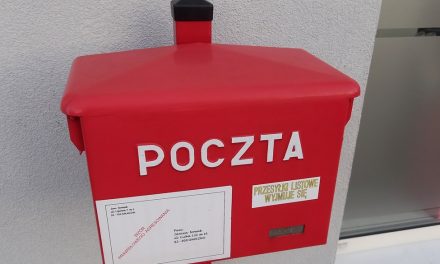
Getting Airborne – DHL's planned acquisition of Airborne Express marks an important change in the U.S. express market
Any disputes over DHL's intended takeover of Airborne Express appear to be taking place in Washington, not among shippers in the rest of the United States. While FedEx and United Parcel Service are ramping up their battle against DHL's planned expansion, claiming that the smaller competitor is an unfair and illegal front for Germany's market-grabbing postal monopoly, groups representing shippers say the deal could bring important new competition to the domestic express market.
"This is good news for shippers," said Dwight Sigworth, of Portland, Ore.-based AFMS, a consultant to parcel shippers. "It is going to infuse capital into an under-financed company and they are going to go after market share."
And Sigworth has a clear view of the impact of a battle over market share. "That means lower rates," he said.
"DHL's brand is so much greater than Airborne's," said John Lund, a vice president of sales at Utah-based Courier Control Center, a franchise of a discount wholesaler of services such as Airborne's for smaller shippers. "Airborne has always been No. 3 in a two-dog race. They've been something of a follower in the market, not a leader. DHL just has so much more behind them. For shippers, this is going to mean tremendous improvements in terms of service and we think they will also see better rates.
"The perception of Airborne in terms of service has not been good," he said.
The deal announced March 25 marks the most dramatic move yet in a multi-billion dollar acquisition-fed expansion that has seen Deutsche Post transform itself from Germany's tired national postal service into a global logistics provider to rival the private express operators. Behind the DHL business Deutsche Post World Net now owns, it is buying directly into the world's largest express market with a purchase that seeks to put DHL on even footing with FedEx and UPS in the United States.
Money Talks
Airborne counted $3.34 billion in revenue last year, which makes it only about 10 percent the size of its larger competitors. But the carrier did hold about 20 percent of the domestic overnight express market, has shown growth in the critical ground market and has an important list of top corporate customers.
"As standalone entities in the U.S. market, DHL and Airborne did not pose major competitive threats to UPS and FedEx," said Ted Scherck, president of the Colography Group, a research and consulting firm specializing in the expedited cargo market. "However, the combination of the two companies … will become a major factor in the decision-making of businesses large and small seeking single-source solutions to their global transport and logistics needs."
The complicated purchase would pay shareholders of publicly-traded Airborne $21.25 per share, for a total cost of $1.05 billion, for all of the company except for its airline operations. In a tightly-drawn arrangement aimed at overcoming laws against foreign ownership of U.S. airlines, the Wilmington, Ohio-based air operations would be spun off as a separate company called ABX Air and shareholders of Airborne would be granted a single share of stock in that new company for each share of Airborne stock.
Otherwise, the pickup-and-delivery network, the customers, the contracts, the ground vehicles, even the hub airport that Airborne owns, would go to Florida-based DHL Worldwide Express, which would also get Airborne Chairman and Chief Executive Officer Carl Donaway as its new CEO.
The purchase set off a furious regulatory fight in the nation's capital, with UPS and FedEx pressing their case that DHL was merely replicating an existing arrangement with DHL Airways that they call a thin façade for Deutsche Post's illegal control of an airline with a U.S. certificate.
In an action attached to the wartime spending bill that got the White House involved in the dispute, the larger competitors got Congress to require that the Department of Transportation appoint an administrative law judge to consider the case of DHL Airways' citizenship. The DOT did that last month and set a Sept. 2 deadline for the judge to rule on the case.
Controlling Interest
The law requiring that airlines operating under a U.S. certificate outlines specific criteria for defining U.S. corporate citizenship, including that at least 75 percent of the voting stock be held by U.S. citizens. That has effectively barred Deutsche Post and Netherlands-based TNT International Express from expanding into the critical market.
But FedEx and UPS argue that even if DHL Airways and ABX Air meet the strict standards against foreign ownership, the vast share of revenue provided by the Brussels-based DHL amounts to effective control of the airlines in violation of U.S. law. Said a UPS spokesman, "We are seeking to have DOT focus on the control aspect of the U.S. ownership rules."
Effective control isn't really defined in the U.S. statutes, however, and without that kind of clear definition, many analysts expect the deal to proceed unhindered. Officials at Deutsche Post and Airborne have said that the regulatory clearance isn't really critical to a deal they expect to consummate this summer. Investment analyst James Valentine of Morgan Stanley said Klaus Zummwinkle, chief executive of Deutsche Post, told him that DHL would simply proceed with its U.S. expansion plans and use other third-party airlift, a common practice among cargo operators in the U.S. domestic market.
In fact, one industry observer, speaking on condition of anonymity, said the acquisition entirely solves any problems DHL might have with its American airline. After all, there is no question about the American provenance of Airborne and its ABX Air unit, which could easily take on DHL's air business if regulators slap down DHL Airways.
The only gap for DHL/DPWN in the United States would then be in the domestic heavyfreight business. Deutsche Post officials did look at BAX Global a couple of years ago before backing away.
Meanwhile, DHL Airways, largely silent in the debate since the Airborne announcement, was preparing to move its offices from Chicago to Miami, just down the highway from DHL's North American headquarters in Fort Lauderdale. Presumably, ABX would compete with the airline. But said Ray Lutz, vice president of business development and strategic planning for the operator, "Don't worry, we will complete."
"You better believe if we ever screwed up our service, we wouldn't have our customer," he said.
DHL hasn't really cleared up what its relationship with its two air service providers will be, but DHL Airways plans to go ahead with the opening of an expensive new express sort center at its Cincinnati hub this spring. Because all but a handful of Airborne's freighters have no full cargo doors, the operations of the two carriers are not compatible.
And if DHL does seek to somehow combine operations of airlines it does not own or control, it likely will have to create new legal arrangements as complicated as the Airborne deal.












